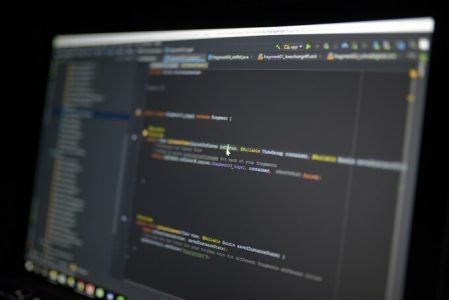Welcome to the future of smart building management! In a world where technology is constantly evolving, the combination of PHP and IoT is revolutionizing how we control and monitor our buildings. By harnessing the power of PHP programming language and Internet of Things devices, building managers can now optimize energy efficiency, enhance security systems, and streamline maintenance processes like never before. Let’s dive into how PHP and IoT are shaping the future of building management systems.
Benefits of Using PHP for Building Management Systems
When it comes to building management systems, integrating PHP can offer a range of benefits. PHP is known for its flexibility and scalability, making it an ideal choice for managing various aspects of buildings efficiently.
One key advantage of using PHP in building management systems is its cost-effectiveness. PHP is an open-source language, which means you can access a wide array of tools and resources without hefty licensing fees.
PHP’s versatility allows developers to easily customize solutions based on specific requirements. This flexibility enables seamless integration with IoT devices for real-time monitoring and control.
PHP’s extensive community support ensures continuous updates and improvements, enhancing the overall performance and security of building management systems.
By leveraging the power of PHP in building management systems, businesses can streamline operations, reduce maintenance costs, and improve energy efficiency effectively.
Real-World Examples of PHP-Enabled Building Management Systems
Imagine walking into a modern office building where the lighting adjusts automatically based on natural light levels, temperature control is optimized for energy efficiency, and security systems are seamlessly integrated. These are all possible thanks to PHP-enabled building management systems.
In retail spaces, PHP allows for real-time monitoring of inventory levels and customer traffic patterns, enabling store owners to make data-driven decisions that enhance the shopping experience. Hospitals utilize PHP in managing patient rooms’ climate control and ensuring medical equipment is functioning at optimal levels.
Even in residential buildings, PHP plays a crucial role in smart home systems that regulate lighting, HVAC settings, and even household appliances remotely through mobile apps. The versatility of PHP in building management systems is evident across various industries, revolutionizing how we interact with our physical environments.
Challenges and Solutions for Implementing PHP in IoT-Based Building Management Systems
Implementing PHP in IoT-based building management systems can present some challenges. One common issue is the compatibility between different devices and protocols within the system. Ensuring seamless communication among various components is crucial for effective operation.
Another challenge lies in ensuring data security and privacy, especially when dealing with sensitive information related to building operations. Implementing robust encryption methods and following best practices can help mitigate these risks.
Scalability can be a concern as the system grows in size and complexity. It is essential to design the architecture with scalability in mind from the outset to accommodate future expansion without major disruptions.
Managing power consumption efficiently is vital for IoT devices in building management systems to ensure optimal performance while minimizing environmental impact. Finding innovative ways to optimize energy usage can be a key solution to this challenge.
Addressing these challenges requires careful planning, continuous monitoring, and adaptation to ensure smooth integration of PHP in IoT-based building management systems.
How to Get Started with PHP and IoT for Your Building Management Needs
Ready to revolutionize your building management system with the power of PHP and IoT? Getting started is easier than you think.
Familiarize yourself with PHP programming language basics. There are plenty of online resources and tutorials available to help you grasp the fundamentals.
Dive into the world of IoT by understanding how sensors, devices, and data streams can be integrated into your building’s infrastructure.
Start small by experimenting with simple IoT projects to gain hands-on experience. This will give you a solid foundation for more advanced implementations in the future.
Consider investing in quality hardware that aligns with your specific building management goals. Reliable sensors and devices are crucial for collecting accurate data.
Collaborate with experts in both PHP development and IoT technology to leverage their knowledge and expertise for a seamless integration process.
Conclusion
PHP and IoT are revolutionizing the way building management systems operate. With PHP’s flexibility and scalability combined with IoT’s connectivity and automation capabilities, the future of building management is brighter than ever.
By leveraging PHP for your building management system, you can enjoy benefits such as cost-effectiveness, customization options, real-time monitoring, and seamless integration with other technologies. Real-world examples showcase how PHP-enabled systems enhance efficiency and sustainability in buildings.
Despite challenges like security concerns and compatibility issues when implementing PHP in IoT-based systems, solutions exist to overcome these obstacles. Getting started with PHP and IoT for your building management needs involves understanding your requirements, choosing the right tools and partners, testing thoroughly before deployment, and continuously optimizing performance.
Embracing PHP in IoT-based building management systems opens up a world of possibilities for enhanced functionality, improved resource utilization, increased energy efficiency, reduced maintenance costs, and overall better user experience. Stay ahead of the curve by integrating PHP into your building management strategy today.

